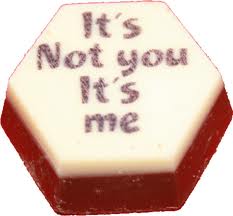My client this morning brought an interesting dilemma. He was at work last week and one of his customer asked his opinion on other traders in the field. Having a nice rapport already with that regular customer, my client allowed himself to share his thoughts on that subject, which actually weren’t very positive…
On his way home, he got a bit worried, wondering if he had done the right thing in being so honest on that topic with a customer. He asked his girlfriend her opinion and she got very wound up and angry with him, criticising the fact that “he always talks too much”. My client was puzzled as her reaction seemed overly strong and felt very guilty about it all. He immediately asked me to schedule an appointment.
When John went into details about the story, it seemed he couldn’t find any controversy in what he had shared with his customer, as he was very careful in not mentioning any names and only giving a general opinion. Through some coaching, we quickly realised that John didn’t think there was an issue in him talking too much actually, he had simply adopted his girlfriend’s beliefs that he did something wrong.
Digging deeper it appeared that a few months ago, John had shared with his best friend that his girlfriend had previously suffered from depression. Justine got very upset as she understandably felt quite protective of this aspect of her life; she probably felt betrayed in being exposed to a third party without her permission. And since that incident, she has been very sensitive every time John was openly sharing some information.
That was quite a breakthrough for John as he actually realised that this criticism had actually not much to do with him, but simply was showing the fact that his girlfriend had some issues – that can be very legitimate – around her depression and him sharing some private information. It is therefore important to recognise the difference between what others believe is right or wrong and what we stand for.
I’ve read a wonderful quote recently that sums up very well the dynamic of this pattern: “When people predict your doom, undermine your dreams or criticise you, remember they’re telling you their stories, not yours.” A lot of the time when you are being criticised, it is very helpful to remember that this reaction says much more about the person having it than you. This approach allows to step back from guilt, blame or feeling defensive and to begin to understand what’s going on for the other person.
We all have a different model of the world and our reactions to external events are bound to be influenced by our subjective perceptions. Our beliefs and values, our past experience and much more will shape how we interpret events and how we respond to them. So most of the time our reactions to others are merely the mirror of what’s going on in our internal experience rather than a detached response to what’s presented to us.
But too often we mistake the map for the reality and try to impose our beliefs on others by criticising them when they don’t behave according to our standards. Sometimes we may simply forget that they follow their values which are simply different from ours, but as valid…
Have you ever been in such a situation?I’d be interested to hear how you handled criticism 🙂


